
IPC: Famine and food insecurity spread in Sudan as humanitarian crisis worsens
Sudan’s humanitarian emergency is worsening amid the country’s ongoing internal conflict, with devastating impacts on food security. The latest Integrated Food Security Phase Classification (IPC) analysis (November 3, 2025) shows that nearly half the population continues to confront high levels of acute food insecurity. Famine (IPC Phase 5) has been confirmed in the cities of El Fasher (North Darfur state) and Kadugli (South Kordofan state), with at least 20 additional localities at risk of famine if violence escalates or humanitarian access continues to be blocked.
Worsening food insecurity, waning response capacity: Options for a better way forward
Food crises arise from the complex interplay of conflict, poverty, climate variability, and economic shocks, resulting in acute food insecurity among vulnerable populations. According to the latest Global Report on Food Crises (2025), the number of people facing severe levels of acute food insecurity has tripled over the past decade, rising from around 100 million in 2016 to nearly 300 million people in 2024.
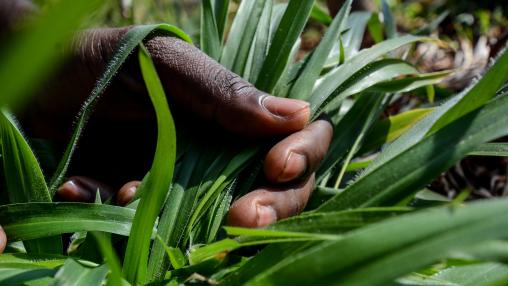
The future of Africa's food security policy: 2025 Global Food Policy Report released
The past forty years have brought both progress and new challenges for African agriculture. While overall per capita food supplies have become more stable and agricultural productivity has improved, the region’s dependence on food imports has increased, from 39 percent between 1985-2000 to 46.6 percent between 2016-2023. In addition, the food security, livelihoods, and overall well-being of wide swathes of Africa’s population remain more vulnerable than ever before to the negative impacts of climate change, political instability and conflict, and economic shocks.
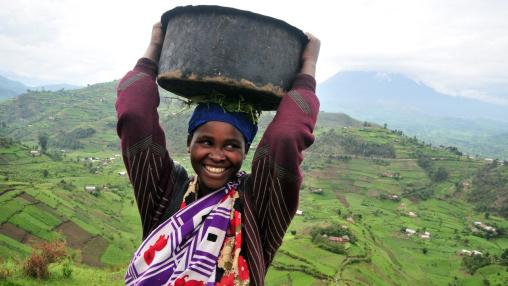
Using Policy to Drive Agrifood Transformation: Lessons from Uganda
Despite Uganda’s rapidly growing economy, as many as 34.6 million people continue to face food insecurity. More than 72 percent of the country’s population cannot afford a healthy diet, and both undernourishment and overweight/obesity among adults pose a growing challenge. To successfully confront these challenges and encourage the sustainable transformation of Uganda’s agrifood system, stronger policies and enhanced collaboration are needed, according to a recent brief from FAO.
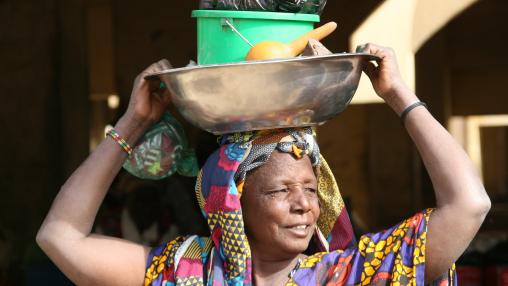
The ECOWAS breakup: Implications for West African food security and regional cooperation
On January 28, the Economic Community of West African States (ECOWAS) will lose three of its founding members—Burkina Faso, Mali, and Niger—comprising 16% of its population of 424 million and 7% of its GDP. Labeled “Sahelexit” by some commentators, the decision to leave ECOWAS was first announced a year ago by the three countries’ trio of military leaders and is now poised to legally take effect.
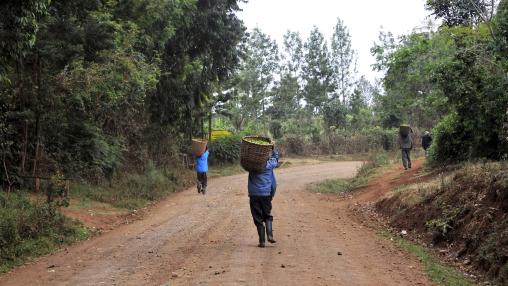
Food Self-Sufficiency Not Enough for Food Security, New Research Suggests
Does Africa need food self-sufficiency to achieve long-term food security?
Not necessarily, according to new research from IFPRI.
With food security continuing to deteriorate across the region and an estimated 600 million people expected to be chronically undernourished by 2030, shoring up Africa’s food and nutrition security has become a priority for the region’s policymakers. This perceived need has been further highlighted by recurring shocks to global food markets, including the 2008 food crisis, the COVID-19 pandemic, and the Russia-Ukraine war.
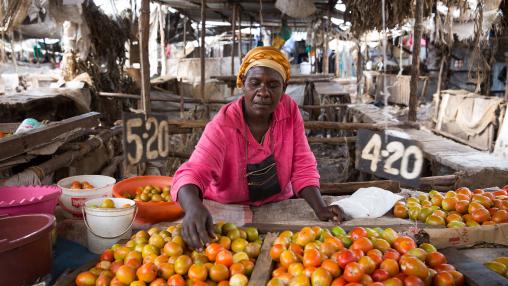
A shock to the (food) system: Using new IFPRI tools to evaluate household food security outcomes
Recent crises and shocks have eroded food security in many countries. These crises take many forms. Some are global shocks, such as a sharp rise in food commodity prices in world markets. Some are local shocks—for instance, flooding from an extreme weather event, or another from the ever-increasing list of climate impacts.
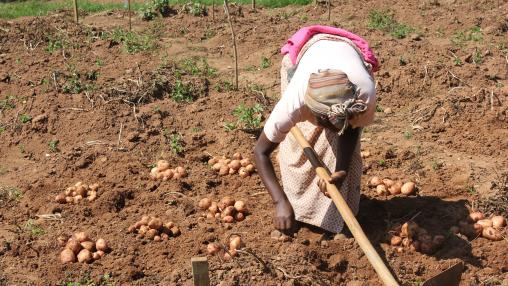
Tracking soil health managers in Uganda
Soil degradation, mainly caused by soil erosion and nutrient depletion, is a key factor undermining agricultural productivity, food security, and livelihoods in low- and middle-income countries. Soil degradation is a key problem in Uganda, which has seen growing soil health challenges. To address this issue, IFPRI, the CGIAR Initiative on NEXUS Gains, and Uganda’s National Agricultural Research Organization (NARO) have initiated a new round of a long-term, gender-disaggregated soil health survey in Uganda.
Learning Support for a Multi-Country Climate Resilience Programme for Food Security
The Learning Support for a Sub-Saharan Africa Multi-Country Climate Resilience Program for Food Security, launched in 2023, aims to enhance food security and climate resilience across 14 African countries. This collaboration among CGIAR, the World Food Programme, and the Norwegian Agency for Development Cooperation (Norad) has three pillars: scaling disaster risk financing, transforming food systems with sustainable school meals and clean cooking, and supporting smallholder farmers.
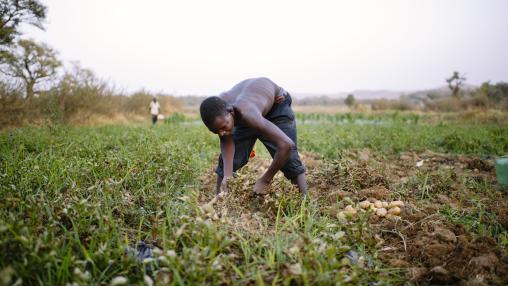
Challenges Remain for Trade Integration in West Africa
Since its establishment in 1975, the Economic Community of West African States (ECOWAS) has been a regional economic community (REC) success story, enabling free movement of people and enhancing trade integration across its 15 member states. When it comes to the movement of agricultural goods, however, ECOWAS continues to be hampered by regional conflict, political instability, corruption, poor infrastructure and logistical capabilities, and the lack of a common regional currency.